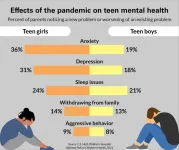To tackle violence against women, it is essential for victims to have the support of those surrounding them and to prevent them from being isolated. But what happens if the people around them are not protected? The work of Jose Ramón Flecha García, founder of the Community of Research on Excellence for All (CREA), and various academic teams, has led to the approval in the Catalan parliament of the first legislation on the Second Order of Sexual Harassment (SOSH).
The following point has been included in Law 17/2020 of 22 December: Second-Order Violence. It consists of physical or psychological violence, reprisals, humiliation, and persecution against persons who support victims of violence against women. It includes acts that impede the prevention, detection, care, and recovery of women in situations of violence against women.
"There was unanimity in parliament. The legal protection that this law offers to supporters is already having a social and political impact in Catalonia. A growing number of institutions and organisations are reflecting on how to include this protection in their protocols. Attacks on those who support victims, which until now were against ethics, are now also against the law," says Flecha García, who has analysed this form of violence in an article published in the journal Violence Against Women, to SINC.
For the scientist, victims can only become survivors if they find support "and this support is only given, with honourable and heroic exceptions, with legislation and institutional actions taken against the cruel reprisals suffered by those who support them. Without such legislation, the law that rules is the code of silence, which is the main ally of the harassers, as it guarantees the isolation of the victims," he adds.
"In Catalonia, both the associative movement and researchers committed to overcoming gender-based violence have been working together for some time. In the framework of the first research on gender-based violence in Spanish universities, some cases of second-order violence were already identified," as Patricia Melgar Alacantud, professor and researcher at the University of Girona and member of the CREA Women's Group, has told SINC.
This work, published in 2016 and co-led by Melgar Alacantud, gathered very significant data in this area, such as the fact that 91% of cases of aggression in Spanish universities are not reported.
"I have no doubt that soon other autonomous communities, as well as other countries, will also include this type of violence in their laws. Ramón Flecha's article will play an important role. His courageous work rigorously analyses this reality that we all know and leaves those who frequently perpetuate silence regarding gender-based violence, isolate the victims or sow terror through their reprisals in a difficult position. I say courageous because researching gender violence, daring to make its existence visible in certain contexts, has a personal and professional cost", the researcher reports.
The legal consequences of this step forward in Catalonia will mean that the protection of victims, as well as all the resources to which direct victims of gender-based violence are entitled, will now also be available to victims of second-order violence. This refers, for example, to accompaniment, psychological or legal assistance.
The testimony of those who have suffered it In her study, Flecha García relies on the stories of six people - four women and two men - who have suffered second-degree sexual harassment in Spain. "Their stories allow us to define the characteristics of this type of violence and provide key elements for learning how to combat it," she explains.
A secondary school teacher, a primary school teacher, a researcher, a man whose sister was abused by a family friend, a woman who is an active member of a political party and an employee of a non-profit organisation became victims of SOSH because they showed their support for the victims.
All of them suffered psychological violence, personal reprisals and in some cases reprisals on the job. In addition, in one case there was physical violence. Marina (not her real name) tells of how the man who sexually abused the girl tried to physically assault her after one of the cases of sexual abuse she reported.
The research shows that stalkers commit second-order sexual harassment through humiliation, threats and lies aimed at tarnishing the personal and professional reputation of victims and undermining their credibility.
Fear of reprisals In Flecha García's research, the six people who shared their testimonies gave their consent to participate, subject to preserving their anonymity and not providing any information that could identify them. In all cases, the experience of second-order sexual harassment lasted for at least one year. Data collection focused on analysing the characteristics of this type of violence, identifying the particularities of each context and the social interactions surrounding these experiences. "Unfortunately, fear was also present in these interviews," Flecha continues.
"Reprisals are so cruel that if we leave it to individual heroism alone, the majority will continue to look the other way in specific cases and there will continue to be very few individual persons who support the victims," Flecha García stresses.
Flecha recounts cases of families where the father abuses his daughter, but she does not receive the expected support because "mere internal denunciation within the family provokes a great deal of rejection." He also points out that in the university itself, members of the equality commissions, after having supported the victims, "have been expelled from these commissions and are so afraid that they do not want this to be talked about"; and recalls one of the most famous cases in Spain, that of a professor at the University of Barcelona who was investigated for sexual harassment complaints from 14 people, which was sent to the public prosecutor's office when the statute of limitations had already expired.
Violence in plain sight For Melgar Alacantud, the fact that these realities began to be made visible in the media and social networks "began to create a breeding ground, but at the same time it constituted an uncomfortable reality in the face of which you either become an accomplice or join in the efforts to transform," she stresses. This second option brought together some researchers, lawyers, social movements, and policy-makers who placed importance on basing changes to the law on evidence.
In other areas, such as in some schools in Spain and other countries, clubs of 'valientes violencia 0' ('0 violence brave persons') have arisen. These groups act as a shield for potential victims so that they do not become victims. "These successful actions must be extended to the whole of society by passing appropriate legislation," argues Flecha.
The University of Girona researcher also points out that it is important to differentiate between the results of research such as Flecha's and what will later be implemented by law. "I have high hopes for this advance, but I also had them for the protocols against harassment when they began to be extended and, in some cases, left much to be desired," she says.
It is still too early to know how the implementation of the law will define the protection of these people, but what experts are aware of is that protecting them will promote support for those who suffer directly from gender-based violence.
INFORMATION:
Reference:
"Second-Order Sexual Harassment: Violence Against the Silence Breakers Who Support the Victims". Ramón Flecha.
Violence Against Women. https://doi.org/10.1177/1077801220975495




